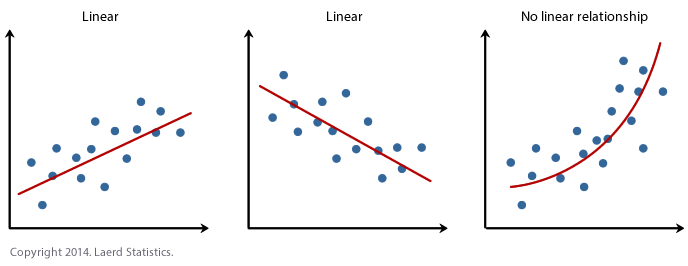
noun
- the act of going back to a previous place or state; return or reversion.
- retrogradation; retrogression.
- Biology. reversion to an earlier or less advanced state or form or to a common or general type.
- Psychoanalysis. the reversion to a chronologically earlier or less adapted pattern of behavior and feeling.
- a subsidence of a disease or its manifestations: a regression of symptoms.
adjective
- of, relating to, or determined by regression analysis: regression curve; regression equation.
noun
- psychol the adoption by an adult or adolescent of behaviour more appropriate to a child, esp as a defence mechanism to avoid anxiety
- statistics
- the analysis or measure of the association between one variable (the dependent variable) and one or more other variables (the independent variables), usually formulated in an equation in which the independent variables have parametric coefficients, which may enable future values of the dependent variable to be predicted
- (as modifer)regression curve
- astronomy the slow movement around the ecliptic of the two points at which the moon’s orbit intersects the ecliptic. One complete revolution occurs about every 19 years
- geology the retreat of the sea from the land
- the act of regressing
early 15c., from Latin regressionem (nominative regressio) “a going back, a return,” noun of action from past participle stem of regredi (see regress (n.)).
n.
- A subsidence of the symptoms of a disease.
- A relapse of symptoms.
- Reversion to an earlier or less mature pattern of feeling or behavior.
- Relapse to a less perfect or developed state.
- The return of a population to an earlier or less complex physical type in successive generations.
- The relationship between the mean value of a random variable and the corresponding values of one or more independent variables.
- A subsiding of the symptoms or process of a disease.
- The return of a population to an earlier or less complex physical type in successive generations.
- The relationship between the mean value of a random variable and the corresponding values of one or more independent variables.
- A relative fall in sea level resulting in deposition of terrestrial strata over marine strata. Compare transgression.
- Retrograde motion of a celestial body.
A Freudian concept used by psychiatrists to signify a return to primitive or impulsive behavior after more mature behavior has been learned. (See also defense mechanism, id, and libido.)
 Liberal Dictionary English Dictionary
Liberal Dictionary English Dictionary